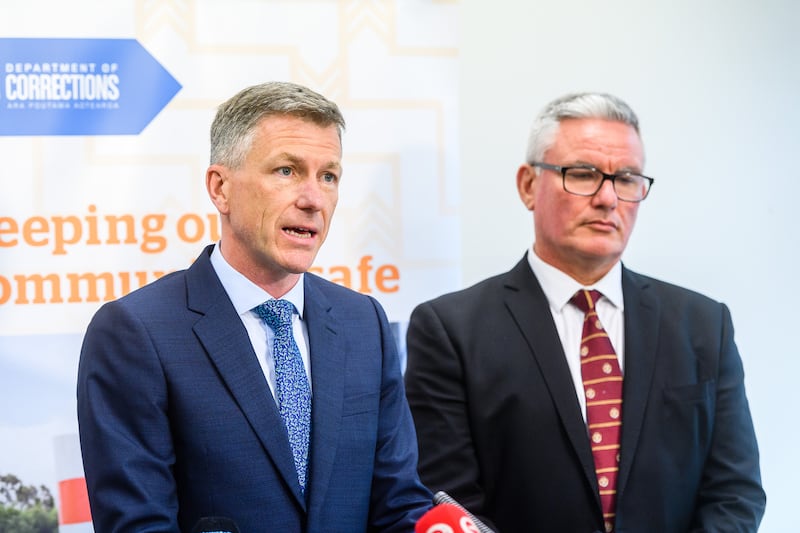“The biggest victims of crime in New Zealand are Māori women,” ACT leader David Seymour asserts, as he launches a blistering attack on the Labour government’s record on crime.
Seymour is drawing on figures from the New Zealand Crime and Victims Survey 2022.
He highlights that Māori represent 37% of crime victims, with an incident rate of 61.89 offences against every 100 adults; despite being 17% of the population.
“Māori women, in particular, are disproportionately affected, with an incidence rate of 59 offences per 100 adults,” Seymour says.
Under Labour, the number of individuals sent to prison annually has plunged by 45 per cent, reaching figures reminiscent of the 1980s.
The reduction is aligned with Labour’s 2017 pledge to cut the prison population by 30 per cent over 15 years.
Plans to beef up system
The reduction policy largely maintains a bipartisan consensus earlier championed by National’s Bill English, who labelled prisons as a “moral and fiscal failure.”
Prisoner numbers hit a low of 7669 in March 2022, a 28% decrease from the 10,400 prisoners in 2017.
Reported crimes are, however, also up 33% over the same time.
The proportion of the prison population who are Māori has also risen from 51 percent on 30 June 2017, to 54 percent of people in prison on June 30, 2022.
Ahead of the upcoming October general election, ACT, under Seymour’s leadership, is proposing a series of changes aimed at beefing up the justice system should it end up in the next coalition government.
ACT would review electronic monitoring for violent offenders, increase prison capacities, force mandatory rehabilitation programs for parole consideration, and reintroduce its three-strikes rule for both violent offences and burglaries.
Send 17-year-olds to adult courts
Seymour also wants to dump cultural reports that influence sentencing, impose infringement notices for shoplifting, and use ankle bracelets for grave youth offences.
ACT, Seymour says, would put 17-year-olds back into the adult judicial system; even though it previously supported them being dealt with by youth justice.
Numerous reports to the government have highlighted the inefficacy of prisons as a long-term solution to crime and rehabilitation.
The chief science advisor to the Prime Minister released a report in 2018 titled Using evidence to build a better justice system: The challenge of rising prison costs. The report underscored that increasing the prison population did not align with decreasing crime rates and stressed the importance of addressing the underlying causes of offending.
The Justice Advisory Group, in its 2019 report, He Waka Roimata, sought feedback from the community and found significant support for an approach to justice that emphasised rehabilitation and restoration over punishment.

The Waitangi Tribunal in various inquiries has critiqued the over-representation of Māori in prisons, highlighting systemic issues that contribute to it but also saying over-representation might qualify as a breach of the principles of protection and equity in Te Tiriti if Māori don’t receive equitable treatment within the justice system, or are being systematically disadvantaged.
Seymour says, however, Labour’s swiftness to adopt recommendations might have inadvertently increased the vulnerabilities of communities like Māori, who they intend to shield. The academics he says, might have got it wrong.
“The tired argument from the left is that we can’t be tough on crime because it disproportionately affects these very communities,” Seymour says.
“Labour swallowed that argument and has created a culture of lawlessness where the people they claim to serve are the most at risk.”
“They should have a look at the facts and see who the victims of crime really are. Being tough on crime is a better policy for protecting these communities than letting them become victims,” he says.
National-Act coalition most likely
“Cuddling criminals hasn’t worked.”
The latest 1News Verian poll released Monday has a National ACT coalition most likely to form a government following the October 14 general election.
National was on 37% in Monday’s poll, up 2 two points on July, while ACT picked up one point to 13%.
Labour sank to 29%, a 4% drop in the past month and its worst performance since Chris Hipkins became party leader.
“It’s going to take a government with ACT at the centre to take crime seriously, restore proper consequences, and put victims first,” Seymour says.


